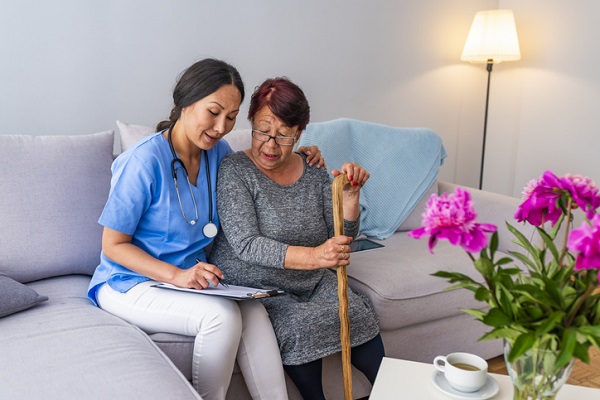
Even before the outbreak of COVID-19, health care assistants were working hard to help improve the lives of seniors and vulnerable people in our communities. Health care assistants work in retirement homes, hospices, extended care facilities, or assisted living residences. It is a rewarding and demanding role, and assistants provide both emotional and practical support.
COVID-19 has put enormous pressure on our healthcare system with almost every role affected—including nurses, doctors, paramedics, medical lab technicians, and health care assistants.
Read on to find out how health care assistants are responding to the global pandemic.
Help With Staff Shortages After Health Care Assistant Training
One of the major ways that health care assistants have been impacted by COVID-19 is through staff shortages. There has been growing demand for health care assistants in Canada for a few months now, and since the outbreak, this has increased rapidly.
This is because a number of health care assistants are unable to work during the pandemic. They might have symptoms, be immunocompromised themselves, or live with someone who is, or be nervous about spreading the virus. This means that there is increased demand for trained professionals to help others after health care assistant college at a number of care facilities.

Difficulties Sourcing Supplies and Maintenance Work
According to some care facilities, COVID-19 has made it difficult to source supplies and arrange for urgent maintenance repairs. This is because there is a risk of contamination through in-person contact. Deliveries need to be done without contact, with some items being dropped off at the doorstep, while repairmen should avoid visiting a care home because of social distancing. This creates added pressure for health care assistants who need to adapt to these changes and overcome any problems.
Extra Health and Safety Precautions
Health and safety is an important part of health care assistant training. COVID-19 means that heightened health and safety regulations are necessary. Health care assistants should wash their hands regularly and thoroughly, wear a mask and gloves, and disinfect doorknobs, phones, remote controls, and other items that are commonly touched. This will help to stop the spread of the virus and protect clients.
In addition, health care assistants should check the temperature of clients and staff as they enter the facility. A high temperature or a fever could be a symptom of COVID-19, and it’s important that individuals with this symptom are kept away from others.
Emotional Support and Companionship
Lastly, this is a difficult time for everyone, especially for seniors and vulnerable members of the population. They might be unable to see their family, friends, and loved ones because of fears of contamination. This could lead to feelings of loneliness and isolation. As a health care assistant, you could provide meaningful emotional support and companionship to help tackle this. Even something as simple as a conversation could lead to an improvement in mood and health.

Do you want to make a difference after health care assistant school?
Contact Discovery Community College to find out more!

